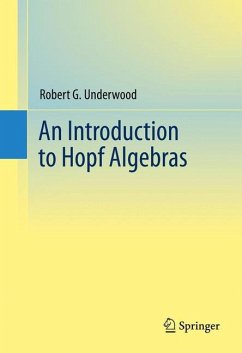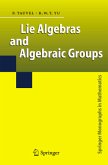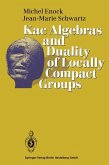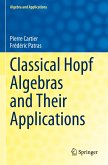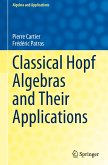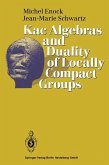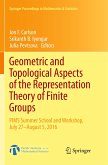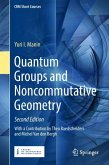With wide-ranging connections to fields from theoretical physics to computer science, Hopf algebras offer students a glimpse at the applications of abstract mathematics. This book is unique in making this engaging subject accessible to advanced undergraduate and beginning graduate students. After providing a self-contained introduction to group and ring theory, the book thoroughly treats the concept of the spectrum of a ring and the Zariski topology. In this way the student transitions smoothly from basic abstract algebra to Hopf algebras. The importance of Hopf orders is underscored with applications to algebraic number theory, Galois module theory and the theory of formal groups. By the end of the book, readers will be familiar with established results in the field and ready to pose research questions of their own.
From the reviews:
"The goal of this book is to introduce readers to the use of Hopf algebras in algebraic number theory and Galois module theory, in particular developing the theory of Hopf orders. ... The book concludes with a chapter of open problems, making this text very suitable for a beginning graduate student to work towards the research frontier in this area. ... This work very nicely complements the other texts on Hopf algebras and is a welcome addition to the literature." -- Jan E. Grabowski, Mathematical Reviews, July, 2013
"In this book, Underwood chooses to introduce Hopf algebras in a manner most natural to a reader whose knowledge of algebra does not extend much beyond a first year graduate course." -- Alan Koch, zbMath
"The last three chapters of the book in point of fact deal with particularly attractive "arithmetical" themes such as class groups of Hopf orders. Underwood ends the book with a discussion of "Open questions and research problems." Clearly this is very sexy stuff, and Underwood's book will make a real impact cutting across a number of putative boundaries..." -- Michael Berg, MAA Reviews
"The goal of this book is to introduce readers to the use of Hopf algebras in algebraic number theory and Galois module theory, in particular developing the theory of Hopf orders. ... The book concludes with a chapter of open problems, making this text very suitable for a beginning graduate student to work towards the research frontier in this area. ... This work very nicely complements the other texts on Hopf algebras and is a welcome addition to the literature." -- Jan E. Grabowski, Mathematical Reviews, July, 2013
"In this book, Underwood chooses to introduce Hopf algebras in a manner most natural to a reader whose knowledge of algebra does not extend much beyond a first year graduate course." -- Alan Koch, zbMath
"The last three chapters of the book in point of fact deal with particularly attractive "arithmetical" themes such as class groups of Hopf orders. Underwood ends the book with a discussion of "Open questions and research problems." Clearly this is very sexy stuff, and Underwood's book will make a real impact cutting across a number of putative boundaries..." -- Michael Berg, MAA Reviews
In this book, Underwood chooses to introduce Hopf algebras in a manner most natural to a reader whose knowledge of algebra does not extend much beyond a first year graduate course. - Alan Koch, Zentralblatt Math.

